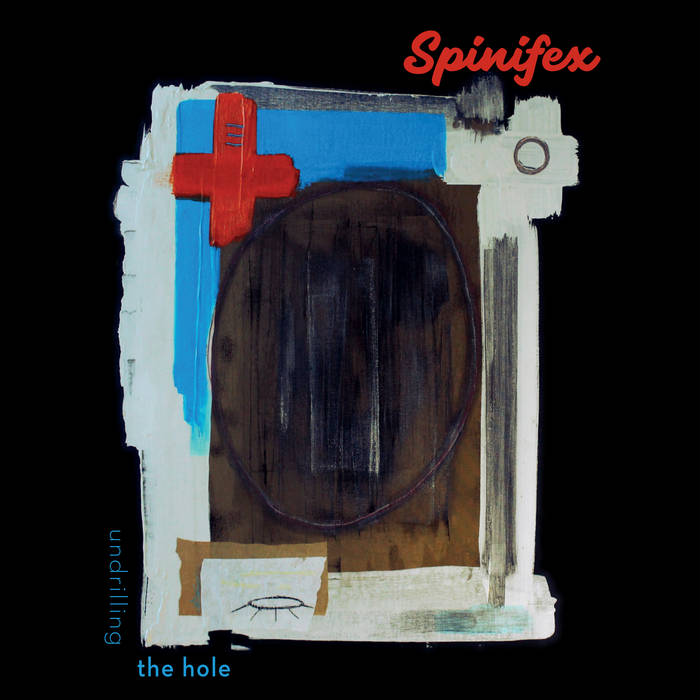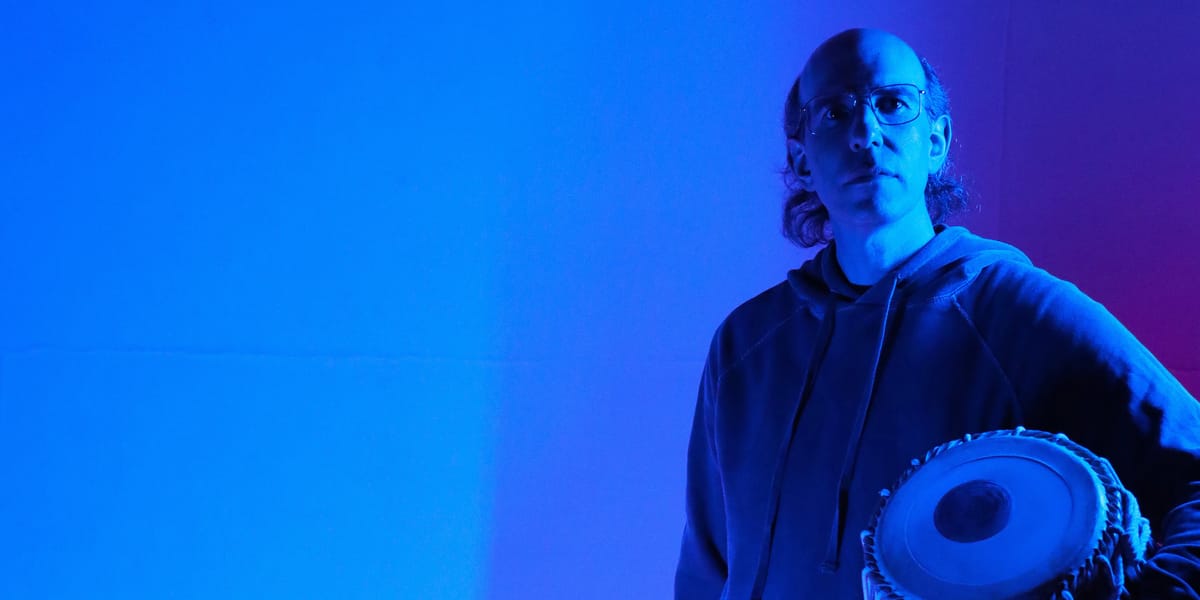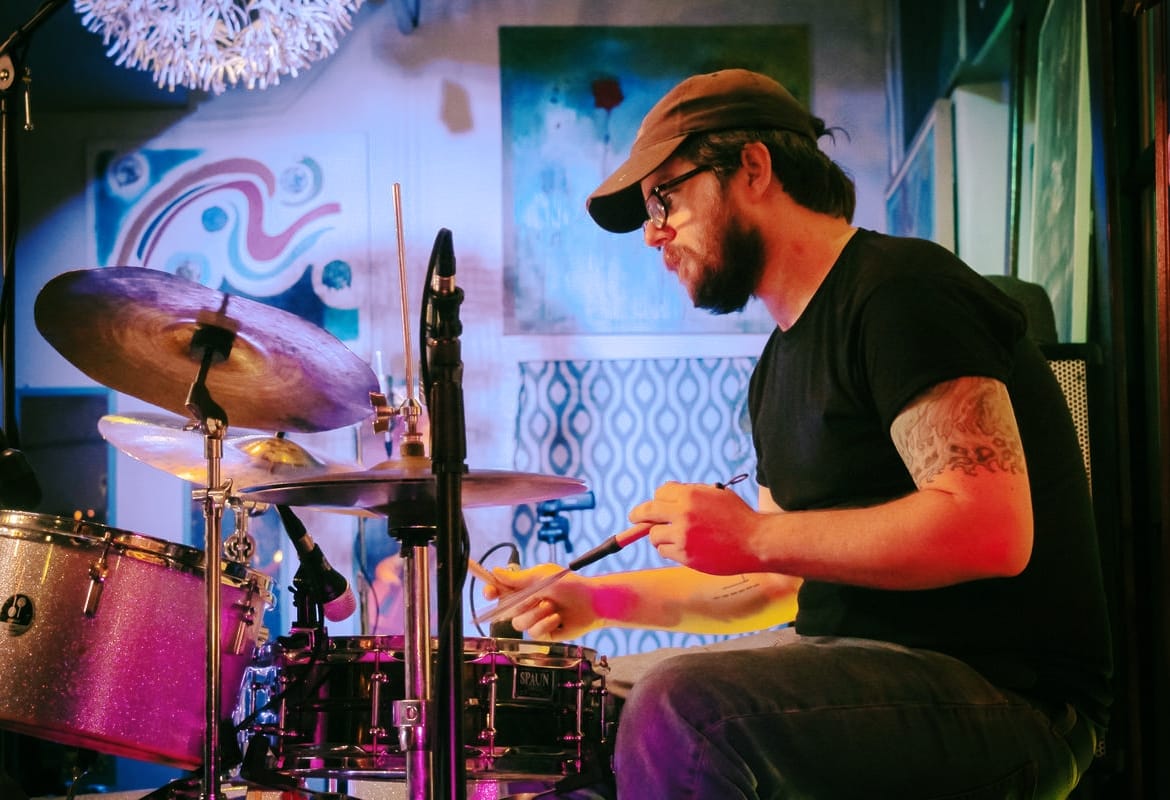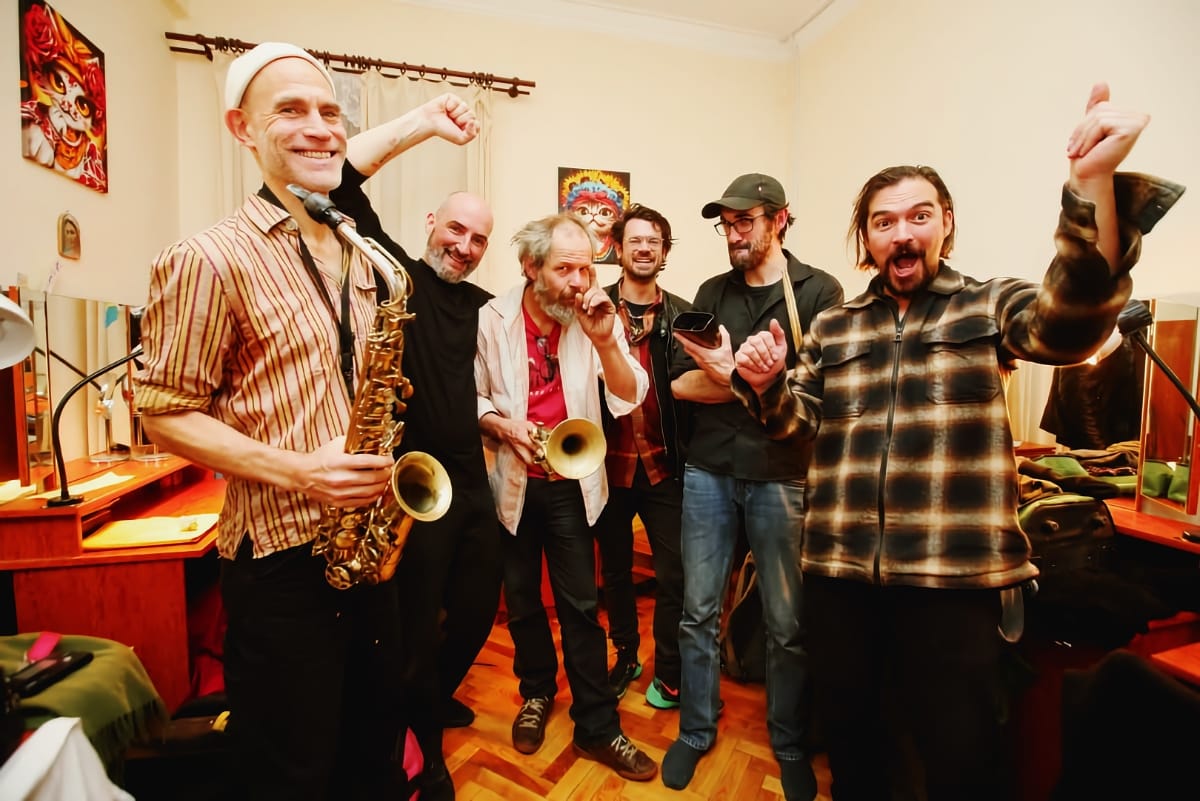• Studied saxophone and bass clarinet at the Conservatory of Amsterdam
• Awarded the North Sea Jazz Composition Commission in 2010
• Teaches at HKU Utrecht Conservatory
• Website | Bandcamp | Spinifex Website
Spinifex blends mathematical structures with punk aggression and tight composition with wild improvisation. Led by alto saxophonist Tobias Klein, this Amsterdam sextet has spent almost twenty years honing its sound while embracing its inherent contrasts. Their ninth album, Undrilling the Hole, finds Klein writing all seven pieces.
A December 2023 tour through Eastern Europe, including Ukraine, revealed how the band's intricate music connected with people living through war and upheaval. This experience shaped songs like "Boiling Up Beautifully" and the title track, reflecting the band's mix of free jazz, metal, and punk and diverse musical influences, from Karnatic rhythms to Australian noise rock.

Lawrence Peryer: The band is named after a resilient Australian grass that thrives in harsh conditions. How does this metaphor reflect your musical philosophy?
Tobias Klein: Alluding to this resilience reflects our choice always to let musical choices come first and not compromise, even if it makes conditions harsher. But honestly, it's mainly about the sound and the wordplay in the name Spinifex. Spinifex could have been almost any plant (or anything), and the band would still be called that.
Lawrence: How did your early experiences bringing together musicians from such different backgrounds—metal, free jazz, classical, punk—shape what Spinifex would become?
Tobias: In my experience, heterogeneity can be a fertile starting point. You surprise each other, and the range of choices broadens. There is the risk that you don't learn to understand each other, and that too much gets lost in translation. But if things click, a strong dynamic gets going.
Lawrence: Your compositions blend free improvisation with structured elements. What guides your decisions about when to maintain tight control versus letting the music open up?
Tobias: It depends on the material. Having played together for a longer time, we have strong intuitions, which makes for less time lost in trial and error when we develop the material. Often, improvisation calls for opening up, whereas written material asks for tighter control. But just as frequently, it's fruitful to approach this exactly the opposite way.
Lawrence: The band pairs complex mathematical structures with punk rock energy. What mathematical concepts inform your compositions?
Tobias: Nothing fancy! Lots of proportions of two to three, sometimes also five and seven. Systematic lengthening and shortening of phrases create a sense of forward propulsion. Some structures are derived from the Fibonacci series; a few shapes use twenty-one (or eighty-four) notes on the current album. The math is basic, but Philipp (our drummer) wrote me a few pretty powerful algorithms that I can use to map one shape onto another.
Lawrence: You've mentioned wanting your music to work intellectually and viscerally. How do you achieve this balance when composing?
Tobias: I don't make a deliberate choice to try to 'provide' for several levels of experience. But I often think in layers, where 'aiming at a balance' comes in. One layer might contain an element one can easily surrender to, and another might challenge one's musical expectations—or two different layers that are both catchy and combine in a surprising or abstract way.
Lawrence: Undrilling the Hole features song titles like "Embrace the Contradictions" and "Explode the Paradox." What attracted you to these themes?
Tobias: Those themes gathered urgency during and after the pandemic on a political, societal, and personal level in the band. It was partly about giving in to wishful, magical thinking that it would be possible to un-drill that hole through music, beauty, and love. I know that's naïve, but it just imposed itself at the time.
Lawrence: On "Tatiana," you've incorporated a riff from Tropical Fuck Storm. What drew you to their sound, and how did you adapt it for Spinifex?
Tobias: TFS are one of my favorite bands lately, and they are incredible live! The song I borrowed from, "You Let My Tyres Down," is their noisy anthem. One thing I like about the riff I stole is how it sneaks into the original tune when it's already been going on for five minutes. It fits, but it's also pretty weird. So when I wrote "Tatiana," I looked at the John Dikeman tenor solo section, and the TFS riff just invited itself as a natural answer to the phrase I already had. I did alter it a bit and made it fit into the 7/4 time signature.
Lawrence: How did your December 2023 tour through Eastern Europe, including Ukraine, influence the development of this material?
Tobias: We had an hour of new music, and for developing it, it was great to have ten gigs in a row. The easiest-sounding tune on the album, "Boiling Up Beautifully," never really boiled up well until we were about halfway through the tour. The "Undrilling" piece was written while traveling there.
Before the tour, I had mixed feelings about going to Ukraine. We have been to some edgy places before; in 2015, we went all across Siberia to Vladivostok, for example. But this was a very different situation, and I had a hard time imagining what we could offer people in a war situation—people who have some really serious things on their minds, like losing family members and finding shelter when the siren goes off. And here we come with our music, pretending it matters!
Of course, all that was true, but it was also true that people in Ukraine welcomed us so warmly—and they went for the music! It was a beautiful, intense, and humbling experience, and we felt that music and the arts could help keep you going even if much of life is a mess. A little bit of 'undrilling the hole' happened.
Lawrence: The press often describes Spinifex as "blending free jazz and punk." How accurately does this characterization reflect your musical goals?
Tobias: It's certainly not our musical goal in the literal sense. But much about punk (particularly the late seventies and early eighties) inspires Spinifex: the rawness, energy, and the spectrum between idealism and hedonism. Also, the DIY spirit. And free jazz as well, definitely, with players like John Dikeman and Bart Maris very close to that tradition. I don't know about the blending, though.
Lawrence: The band also incorporates rhythmic concepts from Middle Eastern and Indian musical traditions. What drew you to explore these forms?
Tobias: Music from the Middle East and India (Karnatic music in particular) has long been a great inspiration for me, as is its melodic and rhythmic richness and depth. These musical traditions are vastly different, even if they share some elements. As a listener and studying them, I'm still only scratching the surface. In general, one thing that fascinates me is that these kinds of music often effortlessly achieve what we discussed earlier, engaging the listener on both an intellectual and a visceral level.
Lawrence: After nine albums, how has Spinifex's sound evolved since its founding as a nonet in 2005?
Tobias: The nonet was quite a different story in its first years. Three people were involved in conceiving the ensemble: flutist Ned McGowan, trumpeter Gijs Levelt, and me. The sound was more acoustic than that of the later quintet and sextet. But many of the ingredients were already there. Ned and Gijs are both huge Meshuggah fans, for instance. We did two projects with Karnatic musicians and toured India twice.
Around the beginning of 2010, Gijs and I needed to create a smaller version of Spinifex and play more. For some years, both projects ran in parallel. In the quintet, the music shifted towards freer improvisations, and the sound roughened quite a bit. Bassist Almeida brought pieces from his jazzcore and noise experience, and guitarist Stadhouders came with new improv strategies. Paradoxically, the musical scope broadened, but the band sound and concept thickened and clicked into place.
Lawrence: Your recent collaboration with vocalists Priya Purushothaman and Björk Níelsdóttir marked a new direction. What inspired this project?
Tobias: In the summer of 2020, when we didn't know the future of live music, I decided to throw off all restraints and create a dream project. That became Spinifex Sings, with Björk, who has a background in contemporary composed music, and Priya, whose background is Hindustani Classical. Also, here, heterogeneity is a starting point. Priya brought in texts by activist poets such as S. Sukirtharani and Perumal Murugan, among others. Björk composed a piece and brought poetry of her own. Everything fell into place, and as if by magic, shortly before the beginning of the project, the pandemic was declared to be over.
A guide to the musical world of Spinifex, including documentation of their various projects and incarnations is found on spinifexmusic.nl.
Check out more like this:
 The TonearmMichael Donaldson
The TonearmMichael Donaldson
 The TonearmLawrence Peryer
The TonearmLawrence Peryer







Comments